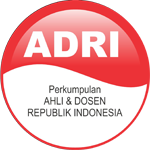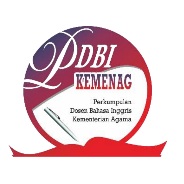Perceptions of Saudi EFL Teachers on the Adequacy of Textbooks
Abstract
This study evaluated elementary school EFL textbooks (We Can Series) from the perspectives of male and female teachers in Saudi Arabia. A quantitative approach was used, with data collected through a questionnaire. The questionnaire, adopted from Alharbi (2017), consisted of 49 items arranged into five textbook evaluation criteria: layout and design, textbook objectives, language methods and activities, language skills, and general evaluation. The questionnaire was administered online using Google Forms to 51 primary school teachers. The results of the study revealed that the primary-stage textbooks are efficient in terms of layout and design. The objectives are stated and highlighted in each section, all language skills are included, there are an appropriate number of activities and exercises, and there are instructions beside each part of the content. However, the study also found that the book's objectives, exercises, skills, and teaching methods are inappropriate for learners' needs at these levels; the number of lessons allocated each week is insufficient for the book's content; there is no logical progression between topics; and supplemental materials such as test models are not available. Additionally, there was a lack of cohesion and sequencing between textbooks in the "We Can Series." In light of these results, the researcher suggested some recommendations for addressing the drawbacks of the EFL primary school textbooks. These recommendations include: revising the objectives and exercises to better align with learners' needs; increasing the number of lessons allocated each week; providing a logical progression between topics; and developing supplemental materials such as test models. The study concludes that the We Can Series has the potential to be an effective EFL textbook series, but that some revisions are necessary to address the identified drawbacks. The recommendations made by the researcher should be considered by the publishers of the We Can Series in order to improve the textbooks and make them more suitable for use in Saudi Arabian elementary schools.
Keywords
Full Text:
PDFReferences
Al Harbi, A. A. M. (2017). Evaluation study for secondary stage EFL textbook: EFL teachers’ perspectives. ELT Journal. 10(3), 26-39. Doi: 10.5539/elt.v10n3p26
Alghamdi, A. A. (2021). The Evaluation of Saudi Intermediate English Textbooks: from EFL Teachers’ Perspective. المجلة الدولية للعلوم التربوية والنفسية, 64(1), 409-435.
Alhamami, M. (2022). Google Books Corpus and designing English for specific purposes materials. Journal on English as a Foreign Language, 12(2), 421-457. https://doi.org/10.23971/jefl.v12i2.4254
Alhamami, M., & Ahmad, J. (2018). EFL Teachers’ Attitudes toward Commercial Textbooks in EFL Programs. Arab World English Journal, 9 (4), 69- 87. DOI: https://dx.doi.org/10.24093/awej/vol9no4.5
Aljouei, K. F., & Alsuhaibani, Y. A. (2018). Evaluating traveller English textbook series from
Saudi secondary school EFL teachers’ perspectives. English Language Teaching, 11(12),
https://doi.org/10.5539/elt.v11n12p138
Alshumrani, H. A., & Al-Ahmadi, N. M. (2022). The Representation of Vocabulary Knowledge Aspects in Saudi EFL Textbooks. Arab World English Journal, 13(4).
Amerian, M., & Khaivar, A. (2014). Textbook selection, evaluation, and adaptation procedures, International. Journal of Language Learning and Applied Linguistics World, 6(1), 523-533.
Cunningsworth, A. (1995). Choosing Your Coursebook. Oxford: Heinemann.
Dorneyi, Z. (2003) Questionnaires in second language research. London: Lawrence
Erlbaum.
Gu, P. Y. (2016). Questionaires in Language Teaching Research Language Teaching Research,
, (5), 567-570.
Hanifa, R. (2018). EFL published materials: An evaluation of English textbooks for junior high school in Indonesia. Advances in Language and Literary Studies, 9(2), 166-174.
Litz, D. R. (2005). Textbook evaluation and ELT management: A South Korean case study.
Asian EFL journal, 6(4), 12-20.
Miekley, J. (2005). ESL textbook evaluation checklist. The Reading Matrix, 5(2), 9-17.
Moskovsky, C., & Picard, M. (2018). English as a foreign language in Saudi Arabia: New insights into teaching and learning English. Routledge, New York.
Mufidati, E., Susaiti, S, (2020). An Evaluation of Indonesian English textbook for secondary school: Teachers’ perspective. In The 5th Progressive and Fun Education International Conference (PFEIC 2020),379, 157-161. https://doi.org/10.2991/assehr.k.201015.024
Orfan, S. N., Noori, A. Q., & Akramy, S. A. (2021). Afghan EFL instructors’ perceptions of English textbooks. Heliyon, 7(11).
Pajares, M. (1992). Teachers' beliefs and educational research: Cleaning up a messy construct. Review of Educational Research, 62(3), 307-332.
Rahimpour,M &Hashemi,R.,(2011). Textbook selection and evaluation in EFL context. World Journal of Education, 1 (2), 62-68.
Rezaeian, M., & Zamanian, M. (2015). Textbook evaluation: ELT teachers’ perspectives on
“Learning to Read English for Pre-University Students”. International Journal of Research Studies in Language Learning, 4(2), 105-118.
Richards, J. C. (2001). The role of textbooks in a language program. Cambridge University Press.
Rosyida, E. R. (2016). Teachers’ perceptions toward the use of English textbook. English education: Jurnal Tadris Bahasa Inggris. 9(1),43-54.
Sheldon, L. E. (1988). Evaluating ELT textbooks and materials. ELT Journal 42(4), 237-246
Susiati, S., & Mufidati, E. (2020). An Indonesian National English Textbook for Secondary Level: Is It Qualified Enough? Jurnal VARIDIKA, 32(1), 118–124. https://doi.org/10.23917/varidika.v32i1.11511
Tok, H. (2010). TEFL textbook evaluation: From teachers’ perspectives. Educational Research and Review, 5(9), 508-517.
Tomlinson, B. (Ed.). (2023). Materials development in language teaching (3rd edition). Cambridge University Press.
Vitta, J. P. (2021). The functions and features of ELT textbooks and textbook analysis: a concise review. RELC Journal. https://doi.org/10.1177/00336882211035826
Bhandari, P. P. (2022). Teachers’ perception on English textbook for grade ten. Journal of Tikapur Multiple Campus, 5,14-28. https://doi.org/10.3126/jotmc.v5i1.46512
DOI: http://dx.doi.org/10.29240/ef.v7i2.8450
Refbacks
- There are currently no refbacks.
Copyright (c) 2023 Munassir Alhamami, Maryam Hassan Somaili

This work is licensed under a Creative Commons Attribution-NonCommercial-ShareAlike 4.0 International License.
INDEXED BY:
 This work is licensed under a Creative Commons Attribution-NonCommercial-ShareAlike 4.0 International License
This work is licensed under a Creative Commons Attribution-NonCommercial-ShareAlike 4.0 International License
@ ENGLISH FRANCA : Academic Journal of English Language and Education
Jl. Dr. AK Gani No 1 Dusun Curup, Rejang Lebong Regency, Bengkulu Province, Indonesia, 39119.
Dr. Eka Apriani, M.Pd., email: efranca@iaincurup.ac.id, eka.apriani@iaincurup.ac.id.





.png)












